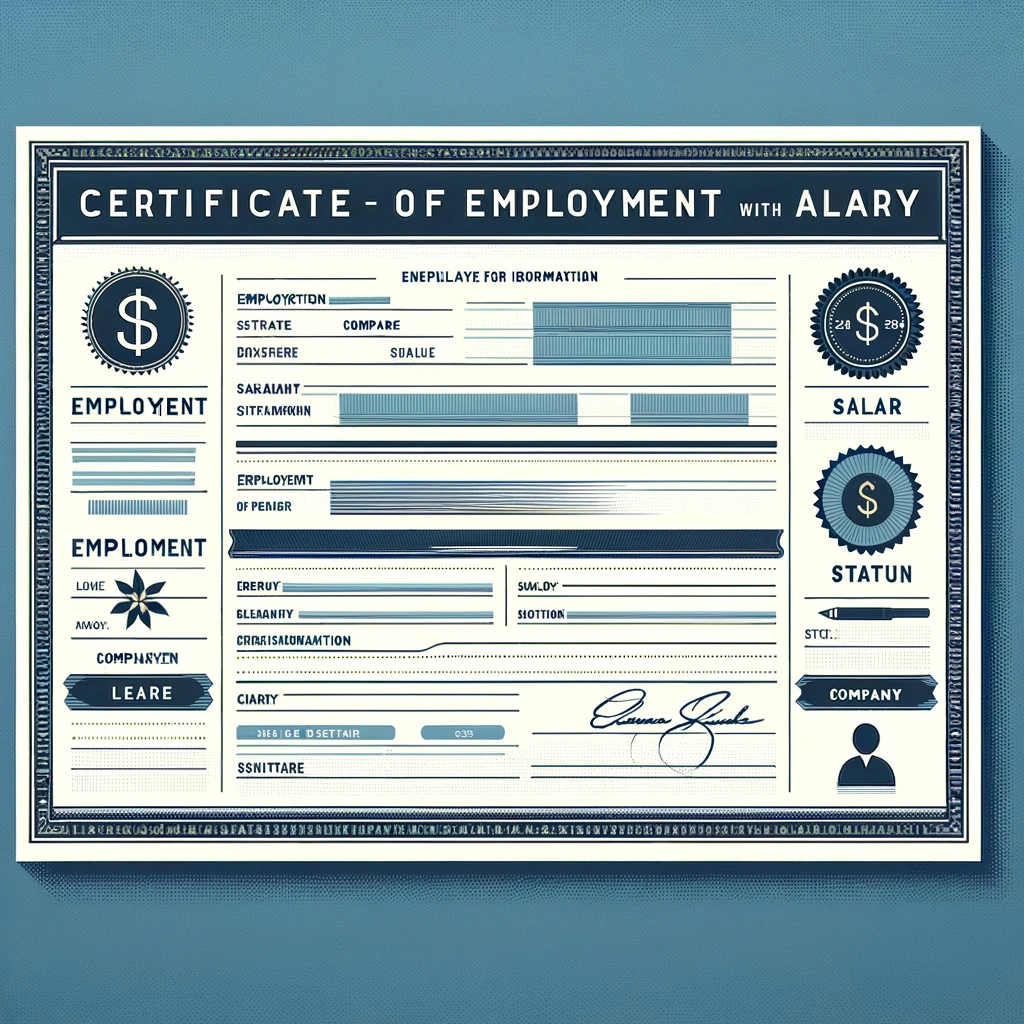The Comprehensive Guide to Certificates of Employment with Salary: Importance, Components, and Verification
In today's fast-paced and ever-evolving job market, the certificate of employment with salary (COES) has become an indispensable document for both employers and employees. This comprehensive guide delves into the significance, essential components, and verification processes of COES, aiming to equip readers with the knowledge to understand, request, and utilize this crucial document effectively.
Importance of Certificate of Employment with Salary
The Certificate of Employment with Salary is a formal document provided by an employer to an employee upon request. It serves multiple pivotal roles in an employee's career and financial journey:
Proof of Employment and Income: Primarily, it acts as a verifiable proof of employment and income, crucial for various financial transactions such as loan applications, visa applications, and credit assessments. It reassures lenders and consular officers of an individual's financial stability and employment status.
Job Applications: For job seekers, a COES can significantly enhance their application by providing potential employers with concrete evidence of their previous employment and salary history, showcasing their experience and worth.
Legal and Compliance Documentation: In some jurisdictions, maintaining records of employment and salary details is a legal requirement for employers. This document can also serve as a compliance tool, ensuring that organizations adhere to labor laws and regulations.
Components of a Certificate of Employment with Salary

A well-crafted Certificate of Employment with Salary should contain several key components to ensure its effectiveness and credibility. These include:
Employee Information: Full name, position held, department, and employment dates.
Salary Details: Comprehensive breakdown of the employee's salary, including base pay, bonuses, and any other compensations.
Employment Status: Details about the nature of the employment (full-time, part-time, contractual, etc.).
Company Information: The company's official name, address, and contact information.
Employer's Signature: An authorized signature from the employer or HR department to validate the document.
For more detailed guidelines on employment documentation, readers can refer to the U.S. Department of Labor's website here.
Verification Process
The authenticity and accuracy of a Certificate of Employment with Salary are crucial, especially when used for formal and legal processes. Verification can be conducted through several methods:
Direct Contact: Employers can provide contact details for verification purposes, allowing recipients of the COES to confirm its authenticity directly with the company.
Third-party Verification Services: Some organizations utilize external agencies to verify employment and salary details, ensuring an unbiased confirmation process.
Digital Verification: Increasingly, companies are adopting digital platforms for issuing and verifying employment certificates, incorporating security features such as digital signatures and QR codes to prevent fraud.
For a deeper understanding of the verification process and its importance in employment documentation, explore resources available on Wikipedia.
Legal Considerations and Best Practices
When issuing or requesting a Certificate of Employment with Salary, several legal considerations and best practices should be followed:
Compliance with Privacy Laws: Ensure that the issuance and usage of COES adhere to local and international privacy laws to protect sensitive employee information.
Accuracy and Timeliness: Employers should ensure that all information provided in the COES is accurate and up-to-date to avoid any potential legal or financial repercussions.
Security Measures: Adopting measures to secure the document against unauthorized alterations or fraud is crucial for maintaining its integrity.
Educational institutions such as Harvard Business Review often publish insights and best practices on human resource management, including the proper handling of employment documents.

Create & Review Your Contracts 10x Quality and Ease
Lawyer-level AI handles all your contract needs, with real lawyers providing safeguarding support

Conclusion
The Certificate of Employment with Salary is more than just a piece of paper; it is a key document that supports an individual's career progression, financial planning, and legal compliance. By understanding its importance, components, and verification processes, both employers and employees can ensure that it serves its purpose effectively and responsibly.
In an era where documentation is paramount for verifying one's professional and financial credibility, the COES stands out as a testament to an individual's employment history and financial stability. As such, it should be issued with care, preserved with integrity, and presented with pride.

